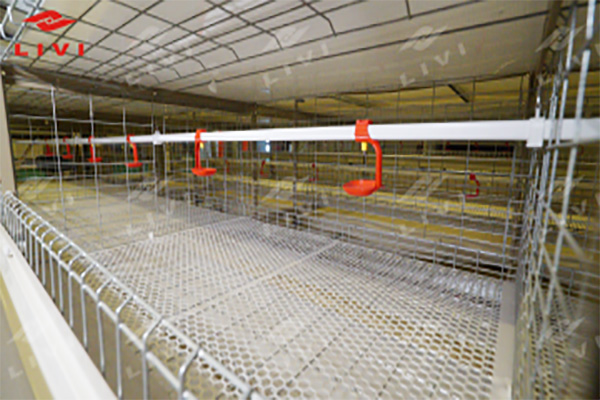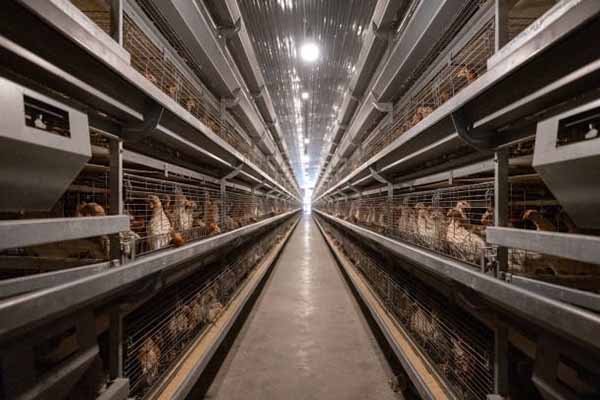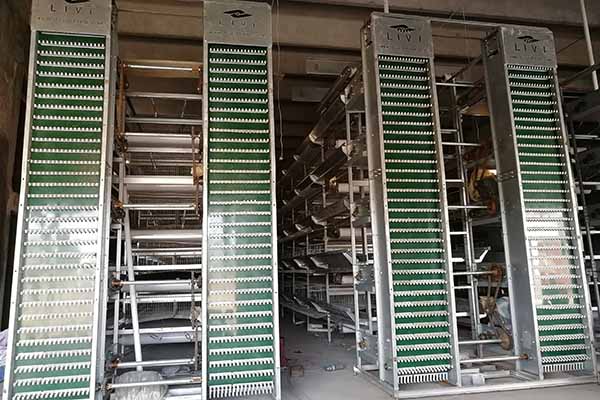Becoming a Local Chicken Equipment Agent in Kenya: A Comprehensive Guide
Time : 2025-04-28
Hey there, fellow entrepreneurs and poultry enthusiasts! Are you looking to break into the thriving poultry market in Kenya? If so, becoming a local chicken equipment agent might just be the opportunity you’re seeking. In this article, we’ll dive into everything you need to know about becoming a successful agent for chicken equipment in Kenya. So, let’s get started!

Understanding the Chicken Equipment Market in Kenya
Kenya’s poultry industry has been on the rise, and with that, the demand for high-quality chicken equipment has skyrocketed. From brooders to feeders, waterers to incubators, the market is vast and growing. As an agent, you’ll be playing a crucial role in connecting local farmers and poultry enthusiasts with the best equipment available.

The Role of Chicken Equipment Agents
As a local chicken equipment agent, your primary responsibility will be to identify potential customers, market the products, and handle sales and distribution. Here’s a breakdown of your key tasks:
- Identifying potential customers: Research and understand the needs of local farmers and poultry businesses to identify your target market.
- Marketing the products: Develop and implement marketing strategies to promote the chicken equipment, such as social media campaigns, networking events, and trade shows.
- Sales and distribution: Establish relationships with suppliers, negotiate pricing, and ensure timely delivery of products to your customers.
Qualities of a Successful Chicken Equipment Agent
While becoming a chicken equipment agent might seem like an easy task, it requires certain qualities and skills to succeed. Here are some key attributes you should possess:

- Knowledge of the poultry industry: Understand the ins and outs of the industry, including the types of equipment available, their benefits, and the specific needs of your target market.
- Strong networking skills: Build a strong network of local farmers, poultry businesses, and suppliers to expand your reach and establish trust.
- Good communication skills: Effectively communicate with suppliers, customers, and other stakeholders to ensure smooth operations and satisfaction.
- Adaptability: Stay updated with the latest trends and advancements in the poultry industry to provide your customers with the best solutions.
How to Become a Local Chicken Equipment Agent in Kenya
Becoming a successful agent requires careful planning and preparation. Here’s a step-by-step guide to help you get started:
1. Research and Understand the Market
Before diving into the business, it’s essential to conduct thorough research on the chicken equipment market in Kenya. This will help you identify potential customers, understand their needs, and determine the best strategies to attract them.
2. Develop a Business Plan
Create a detailed business plan outlining your goals, target market, marketing strategies, and financial projections. This will serve as a roadmap for your business and help you secure funding if needed.
3. Establish Relationships with Suppliers
Connect with reputable suppliers who offer high-quality chicken equipment. Establish strong relationships with them to ensure a reliable supply of products.
4. Create a Marketing Plan
Develop a marketing plan to promote your products and services. Utilize various channels, such as social media, networking events, and trade shows, to reach your target market.
5. Build a Strong Online Presence
Set up a professional website and social media accounts to showcase your products and services. This will help you establish credibility and attract more customers.
Challenges and Opportunities in the Chicken Equipment Market
Like any business venture, the chicken equipment market in Kenya comes with its share of challenges and opportunities. Here’s a look at some key factors:
Challenges:
- Competition: The market is competitive, so you’ll need to differentiate your business and offer superior customer service.
- Price sensitivity: Local farmers and poultry businesses may be price-sensitive, so you’ll need to balance quality and affordability.
- Limited resources: Limited access to funding and resources can pose a challenge, so it’s essential to be resourceful and efficient.
Opportunities:
- Growing demand: The demand for chicken equipment is increasing, offering a significant opportunity for growth.
- Innovation: Stay updated with the latest technological advancements in poultry equipment to offer innovative solutions to your customers.
- Partnerships: Collaborate with other stakeholders, such as farmers’ associations and research institutions, to expand your reach and credibility.
Conclusion
Becoming a local chicken equipment agent in Kenya can be a rewarding and profitable venture. By understanding the market, developing a solid business plan, and staying adaptable, you can overcome challenges and capitalize on opportunities to build a successful business. So, are you ready to embark on this exciting journey? Good luck!











